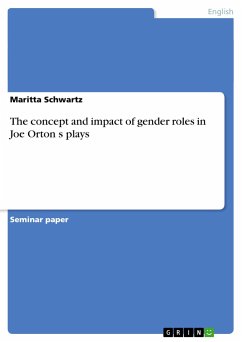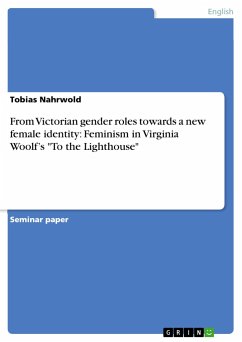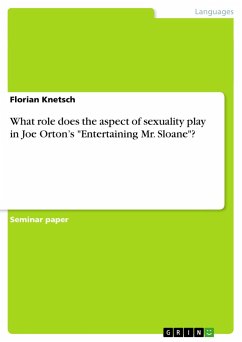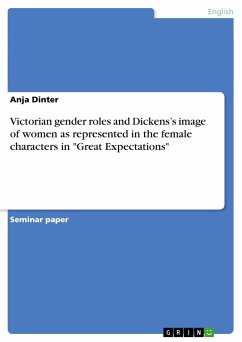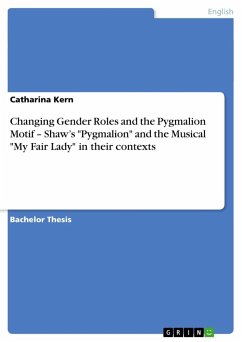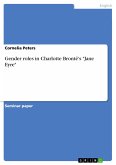Seminar paper from the year 1999 in the subject English Language and Literature Studies - Literature, grade: 1 (A), Ruhr-University of Bochum (English Seminar), course: Advanced seminar: types of modern english comedy, language: English, abstract: 1. IntroductionThere are certain characteristics in Joe Orton's plays that are very typical and of distinctive significance. The aspect of gender roles is one of those characteristics. The purpose of this paper is to explain, why the aspect of gender roles is so important, which different concepts of gender roles we can distinguish in Orton's plays and, eventually, to show and explain those different concepts explicitly at three selected plays.2. What are gender roles?Before we are going to discuss the impact of gender roles in Orton's plays, we should give a short definition of what is meant by this term.Sex and gender are two terms that have to be clearly distinguished from each other. Whereas the term sex means the natural sex of a person, animal or thing, the term gender is aimed at the grammatical and sociological system of sex-references. In the German language, e.g., the grammatical gender of a girl is neuter (das Mädchen) although her natural sex is, of course, feminine. In our context the term gender refers to the different concepts of roles that exist in society, i.e. different sets of norms for behaviour that are associated with being either feminine or masculine and thus create sexual identity. A traditional concept of the feminine role would, for instance, be the one of the housewife and mother, staying at home, cooking and looking after the children. Accordingly, the traditional concept of the masculine role would be the one of the hard-working head of the family. Of course, there are lots of other concepts, some of which we will find in Orton's plays.
Hinweis: Dieser Artikel kann nur an eine deutsche Lieferadresse ausgeliefert werden.
Hinweis: Dieser Artikel kann nur an eine deutsche Lieferadresse ausgeliefert werden.
